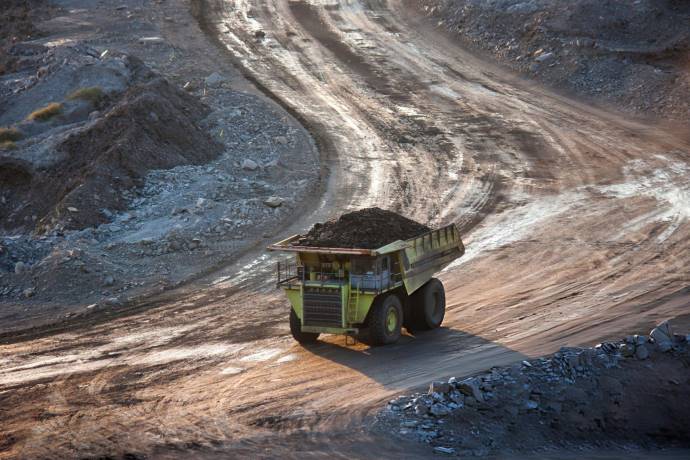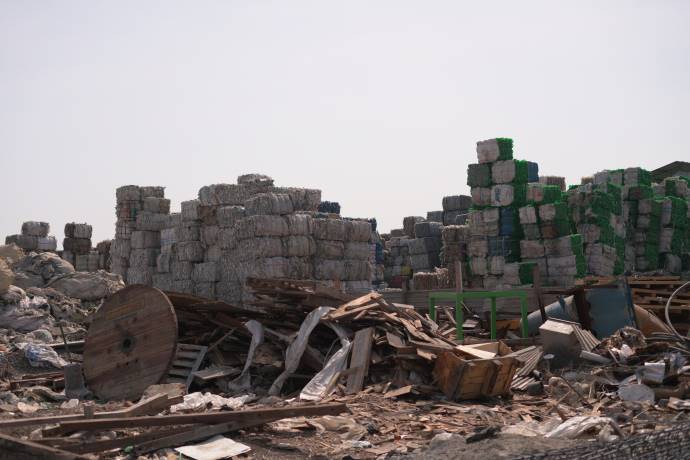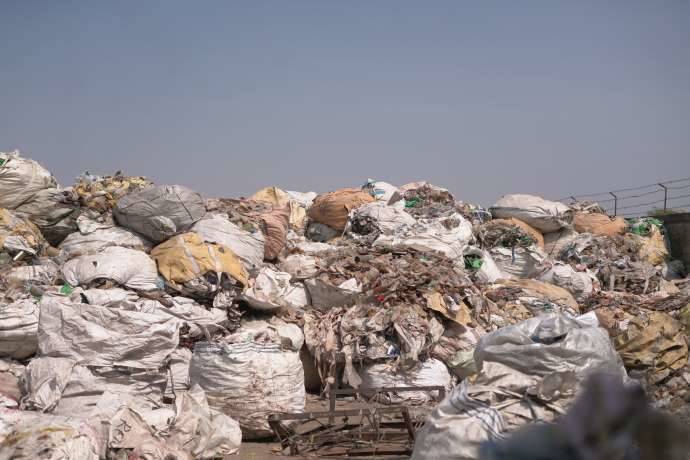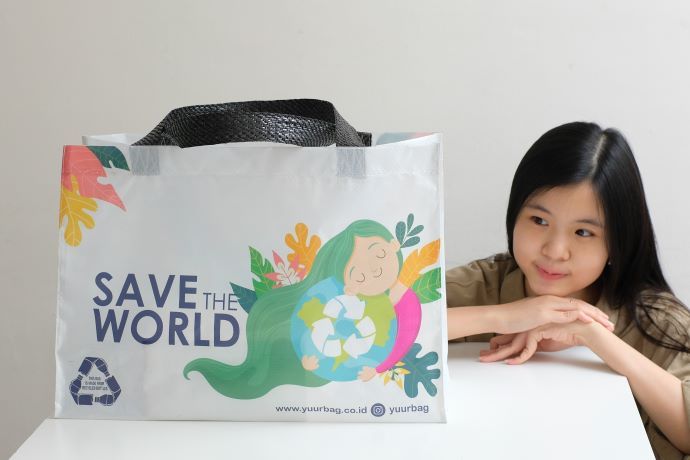Recycled Polypropylene: The Future of Sustainable Packaging
Key Takeaways
- Recycled PP combines strength and sustainability — maintaining toughness, heat, and chemical resistance comparable to virgin PP.
- Food-grade potential is growing — advanced recycling technologies now enable high-purity rPP suitable for regulated food-contact packaging.
- Switching to rPP supports both the planet and profitability — reducing carbon emissions and raw-material costs while enhancing brand perception.
The Urgent Shift Toward Sustainable Packaging
Across industries, companies are under pressure to reduce plastic waste and carbon emissions. Packaging plays a huge role in that journey.
Among all polymers, polypropylene (PP) stands out for its versatility — it’s used in food containers, bottle caps, automotive parts, textiles, and flexible films.
But there’s a growing movement to replace virgin PP with recycled polypropylene (rPP), giving this durable plastic a second life without sacrificing performance. For brands that want to be eco-responsible and cost-efficient, recycled PP packaging is quickly becoming the go-to material.
What Exactly Is Recycled Polypropylene (rPP)?
Recycled PP is simply polypropylene that has been processed to be reused instead of discarded.
There are two main recycling routes:
1. Mechanical recycling – The most common method. Post-consumer or post-industrial PP is collected, sorted, cleaned, shredded, melted, and re-pelletized. This process is efficient but sensitive to contamination.
2. Chemical recycling – A more advanced method that breaks down PP into its original chemical components (monomers or intermediates). It can deliver near-virgin quality resin, ideal for food-grade or high-spec packaging.
Both methods dramatically reduce dependence on fossil-based virgin polymers and cut lifecycle emissions by 50–70%, depending on the process and region (based on comparative life-cycle assessments published in Packaging Digest and academic journals).
At Langgeng Jaya Group, our facilities use state-of-the-art mechanical and chemical recycling systems to ensure consistent quality, producing recycled PP granules with properties close to virgin materials.
Learn more about our PP Recycling Process here.
Why Brands Are Switching to Recycled PP for Packaging
1. Environmental Responsibility That Matters
Every tonne of rPP you use replaces virgin resin derived from crude oil or natural gas. This cuts carbon emissions and diverts waste from landfills or incineration — key metrics in sustainability reporting.
2. Economic Advantage
Recycled materials often cost less than virgin PP, particularly when oil prices rise. By stabilizing raw-material costs, brands improve margins while achieving sustainability goals.
3. Brand Image and Consumer Trust
Modern consumers pay attention to sustainability claims. Packaging that proudly features “Made with Recycled Polypropylene” enhances your brand’s reputation and helps comply with emerging regulations mandating recycled-content percentages.
4. Regulatory Readiness
Governments worldwide are tightening packaging waste rules. Using recycled PP now positions your company ahead of compliance curves — from extended producer responsibility (EPR) policies to recycled-content mandates in Europe and Asia.
Also Read : Virgin vs Recycled Polypropylene - What You Need to Know
Applications of Recycled PP in Packaging
Recycled polypropylene is remarkably versatile. It’s now used across multiple packaging formats, including:
- Rigid packaging — yogurt cups, caps, food containers, buckets, trays, and closures.
- Flexible packaging — films for snacks, labels, and personal-care pouches.
- Industrial packaging — FIBCs (jumbo bags), containers for automotive or chemical products, and even geotextile fabrics.
Its resistance to chemicals and moisture makes rPP especially valuable in food and personal-care applications. With today’s advanced sorting and decontamination technologies, food-grade recycled PP is achievable — and already approved for use in many regions.
Also Read : Recycled PP Granules - 5 Things to Check Before You Buy
Food-Grade Recycled PP: Safety and Regulations
Food safety remains the biggest question for packaging buyers.
In both the EU and the US, regulators allow food-contact use of recycled plastics only if the recycling process proves it can consistently remove contaminants.
- In the European Union, the European Food Safety Authority (EFSA) evaluates and approves specific recycling processes before they can be used for food packaging.
- In the United States, the FDA issues Letters of No Objection (LNOs) to companies demonstrating that their rPP is safe for food contact based on challenge tests and process validation.
Langgeng Jaya Group adheres to these international standards, employing strict cleaning, decontamination, and traceability systems to ensure our recycled PP granules meet food-grade requirements.
Our quality team routinely performs melt-flow index (MFI) testing, contamination checks, and migration testing in certified laboratories.
Typical Technical Specifications for Langgeng Jaya Group rPP
| Property | Typical Range | Notes |
| Melt Flow Index (230°C/2.16 kg) | 4–20 g/10 min | Adjustable based on application |
| Density | 0.90–0.91 g/cm³ | Similar to virgin PP |
| Tensile Strength | 25–30 MPa | Suitable for rigid packaging |
| Elongation at Break | 200–400% | Excellent flexibility |
| Contamination Level | < 100 ppm | Ensured through multi-stage filtration |
| Recycled Content | 100% (customizable blends available) | Verified via COA |
Read more about our rPP Natural Low & High MFI and also our rPP Color Granules.
Challenges — and How Technology Overcomes Them
It’s true that recycled PP can face issues like inconsistent color, odor, or mechanical strength due to contamination or mixed feedstock. But modern recycling technology has evolved rapidly.
At Langgeng Jaya Group, we overcome these challenges through:
- Advanced optical sorting and filtration to remove impurities.
- Deodorization systems to eliminate unwanted odors.
- Additive stabilization to improve melt stability and product lifespan.
The result: high-quality recycled PP granules that rival virgin plastic in strength, safety, and visual appearance — ideal for both food and industrial packaging.
Innovations Shaping the Future of Recycled Polypropylene
1. Chemical Recycling Scale-Up – Companies worldwide are investing in pyrolysis and depolymerization to create “circular” PP with food-grade purity.
2. Digital Traceability – Blockchain and digital watermarking are enabling packaging to be tracked from production to recycling, improving feedstock quality.
3. Design for Recycling – Packaging designers are moving toward mono-material PP packs, eliminating mixed materials that complicate recycling.
Langgeng Jaya Group actively partners with brands adopting mono-material packaging designs to ensure their products stay recyclable and meet upcoming regulatory standards.
Lifecycle Impact and Carbon Reduction
Studies show that recycled PP reduces greenhouse-gas emissions by 50–70% compared to virgin PP, depending on collection efficiency and process energy.
That’s equivalent to saving more than 1.5 tons of CO₂ per ton of resin replaced — a tangible, reportable metric for your sustainability report.
Switching to rPP isn’t just good for the planet — it’s a smart business decision with measurable returns.
Case Example: Recycled PP in Food Packaging
A Southeast Asian food-container brand recently partnered with Langgeng Jaya Group to replace 20% of its virgin PP with recycled content.
The result:
- Annual cost savings of nearly 12% in raw materials.
- Carbon reduction equivalent to removing 200 cars from the road per year.
- Positive brand lift — the company featured the story in its sustainability campaign.
This demonstrates that rPP packaging delivers real-world impact when quality and consistency are managed correctly.
How to Transition from Virgin to Recycled PP
If your company is planning to integrate recycled PP into packaging lines, follow this simple process:
1. Assess packaging compatibility — review product exposure, sealing requirements, and food-contact status.
2. Request technical datasheets — compare mechanical properties and MFI ranges.
3. Test small batches — trial 10–30% blends to confirm processing stability.
4. Validate compliance — ensure documentation meets local or export regulations.
5. Scale gradually — once successful, increase recycled content to 50–100%.
Langgeng Jaya Group supports clients through every stage — from material testing to certification and scaling up production.
Also Read : How to Switch from Virgin to Recycled Polypropylene
Conclusion: A Future Built on Circular Packaging
Recycled polypropylene is no longer a niche alternative — it’s becoming the standard for responsible packaging.
By adopting high-grade rPP, your company can:
- Lower carbon emissions and costs,
- Strengthen compliance with sustainability regulations, and
- Build consumer trust through authentic, circular practices.
At Langgeng Jaya Group, we’re proud to supply recycled PP granules that meet global safety, quality, and sustainability standards — empowering businesses like yours to take meaningful steps toward a cleaner future.



